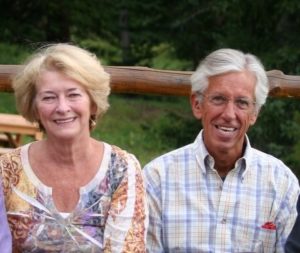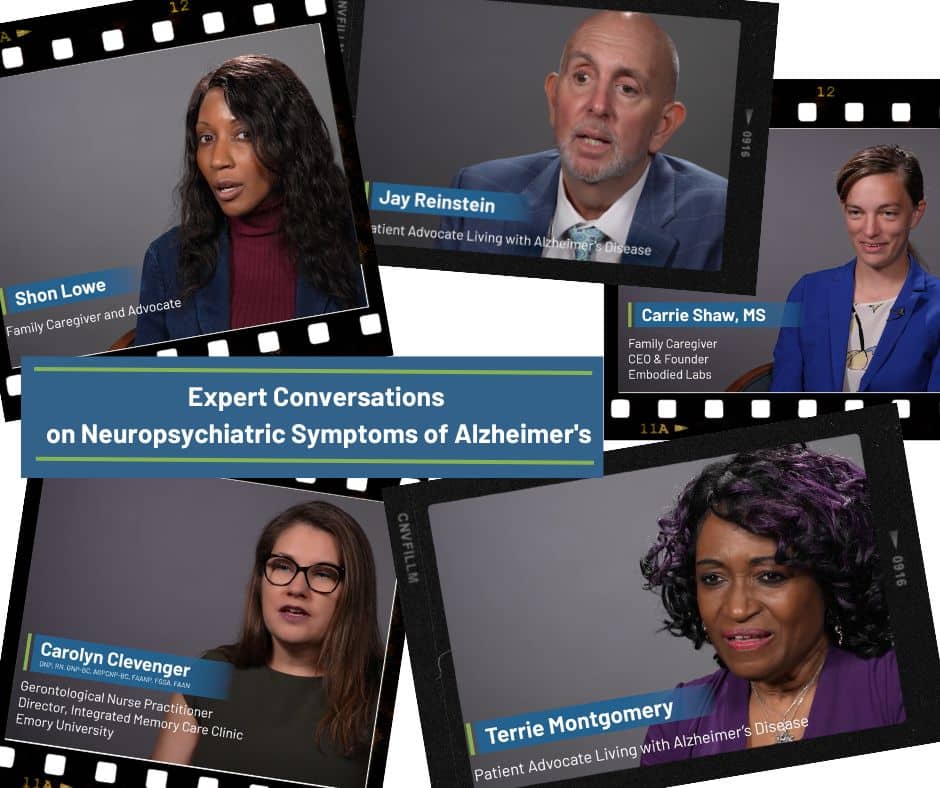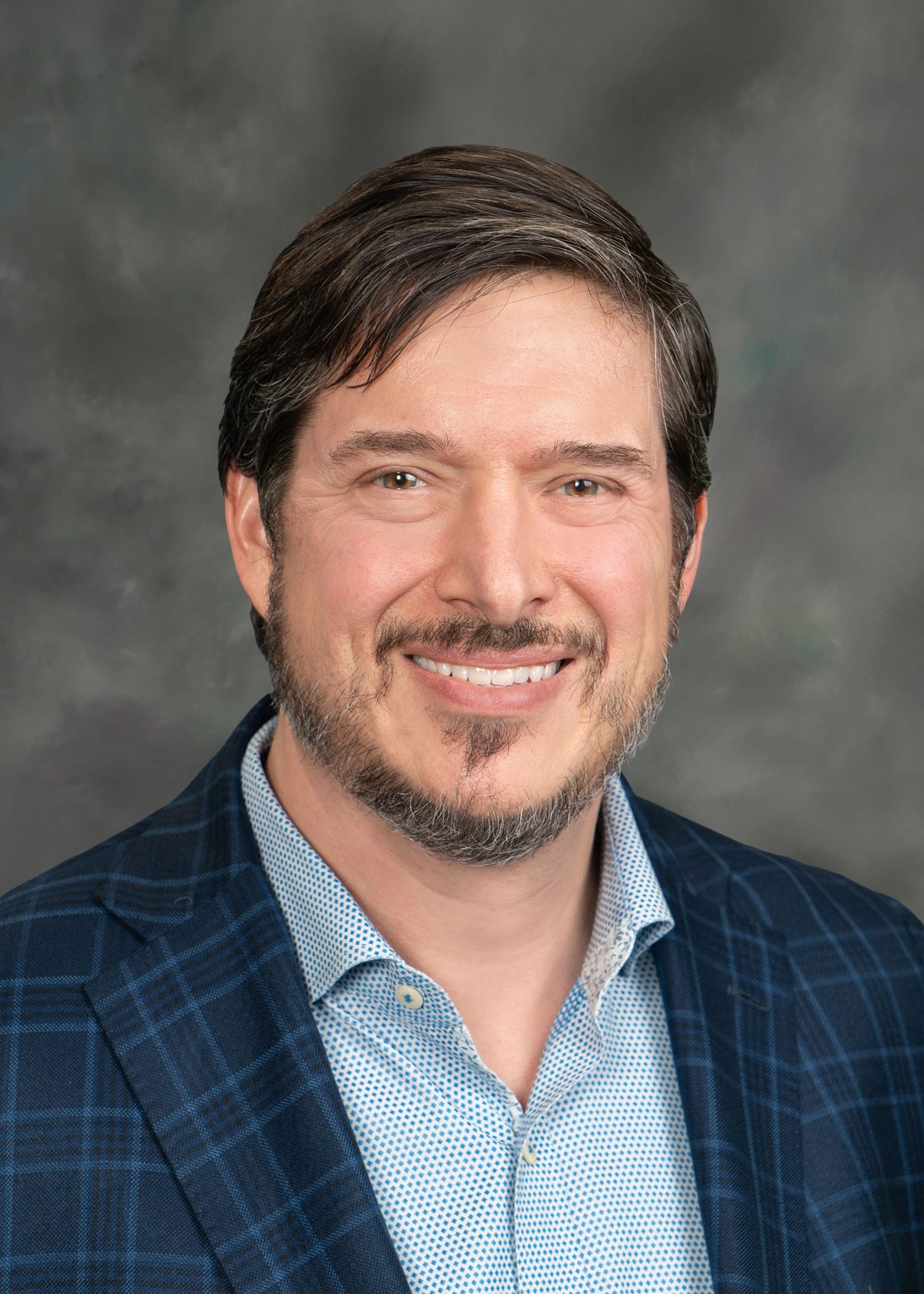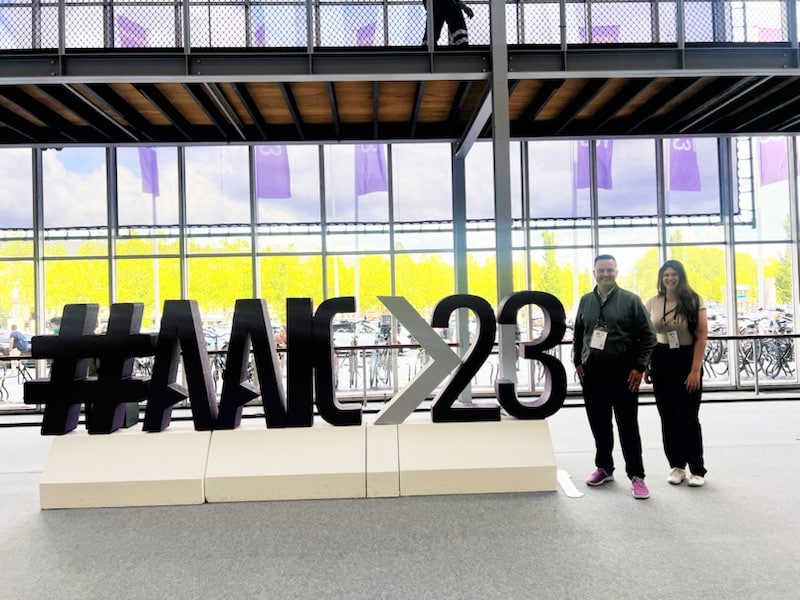
In the six years since Geri Taylor was diagnosed with Alzheimer’s disease, she and her husband, Jim, have been keeping busy.
They were featured in the New York Times. She participated in a clinical trial. They spoke about their experiences with Alzheimer’s in front of thousands of people, giving a glimpse at a disease that is so often stigmatized and simply not talked about.
Along the way, they participated in the Alliance for Aging Research’s Senior Patient & Family Caregiver Network (SP&FCN) training. This training empowers patients and their caregivers to participate in patient-centered outcomes research. The next year, they came back as keynote speakers.
With confidence gained from participating in training, Jim and Geri Taylor are continuing to do all they can to advocate for a cure.
Their journey as patient advocates began relatively soon after Geri’s diagnosis, kickstarting after an in-depth look at her life with Alzheimer’s was published in the New York Times.
“This made us well-known in the Alzheimer’s community and gave us a platform for which to have greater involvement in many boards and activities,” Jim said.
Reading this inspiring profile in the New York Times, it’s clear that Geri had no plan to stay silent about her Alzheimer’s diagnosis. While on vacation in Florida, Jim and Geri were invited to give a presentation about living with Alzheimer’s at a church. The reaction to their presentation was so positive, that they decided it would be more than just a one-time event.
“We had something that we needed to share because it very much educated people what it was like to have Alzheimer’s,” Jim said. “It addressed a lot of fears that people in our age group have.”
Jim and Geri have continued to give the presentation over the years, serving as keynote speakers at conferences around the world.
“I think that we do inspire people. We encourage people in our honesty, as an example and sort of cheerleading to other people that they can also find ways to adapt to living with Alzheimer’s,” Geri said.
Jim notes that part of what people like so much about the presentation is how honest and open he and Geri are about how Alzheimer’s has impacted them. They also add a bit of humor to their presentation.
“We talk about how we have coped, how we continue to live fully and passionately during this time and try to inspire other people to do the same,” Jim said.
Something that Jim and Geri have noticed after they speak at these conferences is people’s desire to share their own experiences, something they might not get a chance to do regularly.
“These gatherings give people with the disease and their care partners a chance to talk to other people who are living this life,” Geri said.
Geri and Jim are demonstrating that patients with Alzheimer’s and their care partners can play a role in fighting Alzheimer’s disease. Participating in the Alliance’s Senior Patient & Family Caregiver Network training is one way that Geri and Jim were able to do this by learning all about research advocacy.
“I realized that while I was not a researcher or a health professional, I could do so much more,” Jim said of his experience at the training. Before the training, Jim had never heard about PCORI—the Patient-Centered Outcomes Research Institute. Now, he and Geri are actively working on a PCORI-funded project.
“I had never heard the word before. It is a wonderful movement and we have been grateful to get involved,” he said.
More than anything, the SP&FCN training gave Jim and Geri a sense of confidence.
“The thing that I just can’t express well enough—after the training, it gave me confidence. It boosted my confidence in being able to make a difference—it gave me more comfort in saying yes to opportunities we’ve been presented with,” Jim said.
For example, Jim and Geri will soon be heading to Cambridge, Massachusetts to participate in a full day panel with a pharmaceutical company to share their feedback on what can be done to improve the experience of participating in clinical trials.
This is a big deal for Jim and Geri, who recognize the critical importance of increasing participation in Alzheimer’s disease clinical trials.
“We will not find a cure or make progress unless we have greater participation in clinical trials,” Jim said.
Luckily, SP&FCN teaches participants all about the clinical trials process, and attendees leave the training empowered to patient-centered outcomes research. If you’re a patient or a caregiver of a patient with Alzheimer’s disease, sarcopenia, atrial fibrillation, chronic pain, age-related macular degeneration, or heart valve disease, we encourage you to learn more about participating in this year’s training, which takes place in Dallas, Texas from November 19 to 21.





